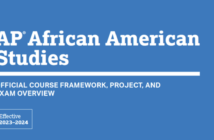By JOSE BERNARDO REYES FACIO’18
STAFF WRITER
Last week, college campuses across the country were filled with chants like “illegal is not a noun,” “teachers need DREAMers,” and “this land was made for you and me.” College and high school students protested President Donald Trump’s administrative decision to end the Deferred Action for the Childhood Arrivals, or DACA, program.
DACA was established in 2012 by then-President Barack Obama, providing some comfort for young people who were brought to the U.S. illegally as children. Although it did not provide a path for citizenship, the DACA program deferred any risk of deportation and allowed these residents to get permits to work legally in the country. Without DACA, students would not be able to work legally or access federal financial aid, which would force thousands to drop out of college and become targets for deportation.
Being located in the third most DACA-student populated state in the country, educational institutions in Illinois recognize their responsibilities regarding the end of the program. The University of Illinois at Chicago, for instance, sent online instructions for students and security staff to call campus police immediately if anyone, including federal agents, come on campus and start asking questions. “We have to follow the law, obviously,” UIC Provost Susan Poser informed U.S. News, but “we’re going to do everything we can to support [students].”
Even high schools have joined the movement. Brett Chody, a Senior Editor at Lake Forest High School’s Forest Scout recently wrote, “when I think about DACA, I, like many of you, initially think about my own distance from the issue. What I can guarantee each student of LFHS is that, whether or not you know them by name or by face, you know someone affected directly.”
This decision affects thousands of institutions in the nation, including Lake Forest College. According to Associate Vice President for Financial Aid Jerry Cebrzynski, “we have a small number of DACA-registered students enrolled at Lake Forest College.” Although it is legally impossible to know how many DACA students there are on campus, one thing is for certain: we must support them in any way we can.
At first, I could easily think that there are enough resources available on campus for the protection of DACA students. Interim Director of Intercultural Relations Jasmin Robinson, for instance, said that there will be educational campaigns for the community regarding DACA, opportunities to write letters, and safe spaces such as “Hot Topic Tuesday” where students can discuss how they feel. There are student-led organizations on campus, such as Latinos Unidos, that intend to “support the current and graduated DACA students with online resources,” the organization’s current president, Clarissa Jimenez ’18, said.
A week after the event took place, President Stephen Schutt—together with Student Government President Jeremy Levinson ’18– offered a student forum to “talk about our campus climate in the wake of recent events in Charlottesville, St. Louis, and other national and international locations.”
Without undermining the terrible events in Charlottesville or those occurring elsewhere, it is important to note that there was no mention of DACA students at the College and the threat that the end of this program represents to them.
I don’t think that we are doing enough. I don’t think a space to talk about my issues is enough. I don’t think a letter signed by President Schutt last November in which it was “urged that President-elect Trump would take more forceful stand against harassment, hate, and acts of violence” is enough.
I am an advocate for solving issues collectively, in a civil manner, as the President encouraged the student body to do. So, instead of complaining about this issue, I would first like to openly offer my support to any DACA student reading this. You’re not alone. I’m sorry you have to go through this. I can only imagine what it is like to wake up in a country that suddenly doesn’t want you anymore. I will do everything I can to help you, and I hope other readers do so, too.
Secondly, I propose to create a “contingency plan,” similar to the one enacted at the University of Illinois, which encourages students to call Public Safety if federal agents show up at Lake Forest as well as provide legal training regarding the type of questions that a federal agent is allowed to ask.
I propose to find ways for students to take Lake Forest courses online and to open channels in which we would be able to work with international universities to find places for DACA students if they are forced to leave the country.
I propose a solid compromise between College officials and the student body stating that they won’t release any student or employee information to federal officials unless a lawful subpoena or warrant requires them to do so.
I propose that Lake Forest College officially declares itself a safe space for DREAMers.
This is a real threat to the student body and I would like to encourage every reader to treat the policy as such.
Jose Bernardo Reyes Facio can be reached at reyesfaciojb@lakeforest.edu


